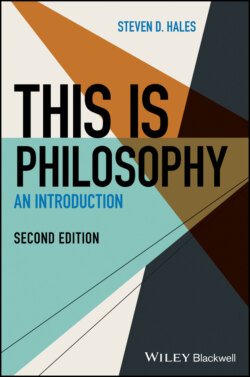Читать книгу This Is Philosophy - Steven D. Hales - Страница 15
Objection 2: subjectivity.
ОглавлениеThe second objection to ethical egoism is that it makes morality wholly subjective, in just the same manner as matters of taste. Many people think that if anything is purely subjective, then taste is. Thus there is no objective fact of the matter about whether broccoli tastes delicious, or whether roses smell better than lilacs. There are simply personal preferences; some like roses better, others lilacs. It is hardly a matter over which we might have violent disagreement, or, really, any meaningful disagreement at all. You like one and your friend likes the other. You acknowledge each other’s preferences and move on. How exercised can one really get about Coke vs. Pepsi, or what your favorite color is?
If ethical egoism is correct, then morality is just as subjective as matters of taste. Suppose Joe thinks eating babies is morally wrong and Jane thinks eating babies is not only morally permissible, but delicious to boot. As in the cases of taste, there is no true disagreement between Joe and Jane–they are doing no more than expressing the preferences they have, in light of the goals and desires they each possess. Joe advances his interests by not eating babies, and Jane advances her (presumably culinary) interests though cannibalism. Joe is doing the morally right thing (for Joe) and Jane is doing the morally right thing (for Jane). Therefore they are in no position to criticize each other. The most each could say is “I wouldn’t do what you’re doing–but by all means, carry on.” The ethical egoist credo is live and let live, or, perhaps de gustibus non est disputandum12. Each is acting to pursue their own self-interest, which is exactly what ethical egoism says they ought to do. If you think that it is entirely reasonable and morally fair to criticize Jane for her cannibalism, then ethical egoism is not the correct moral theory.
